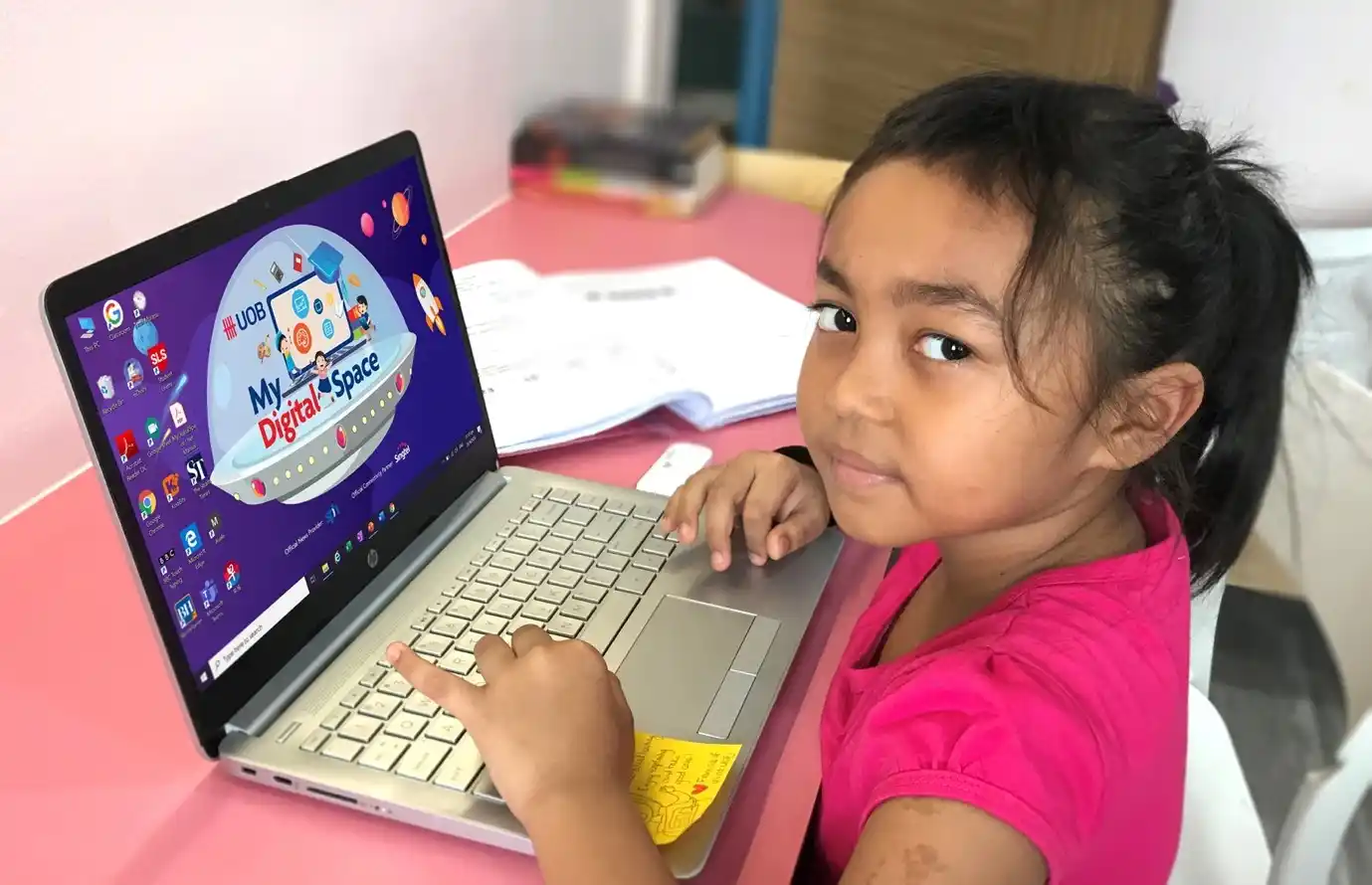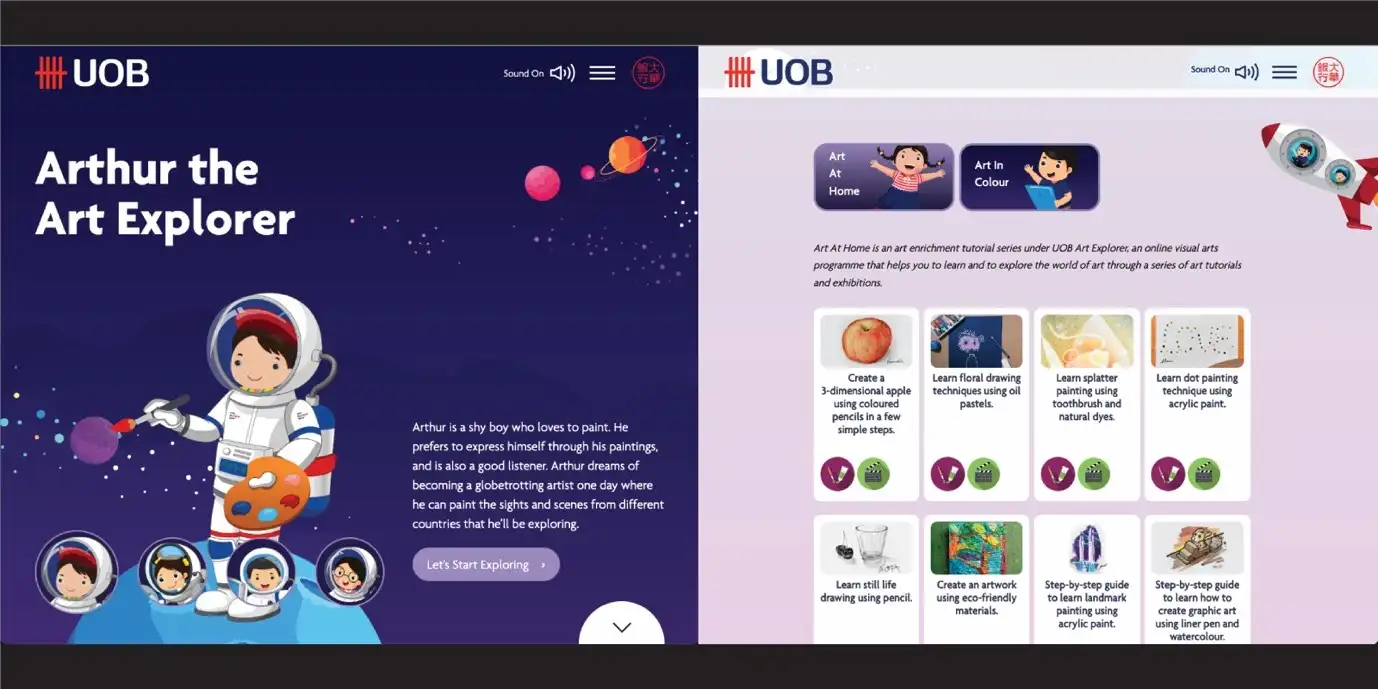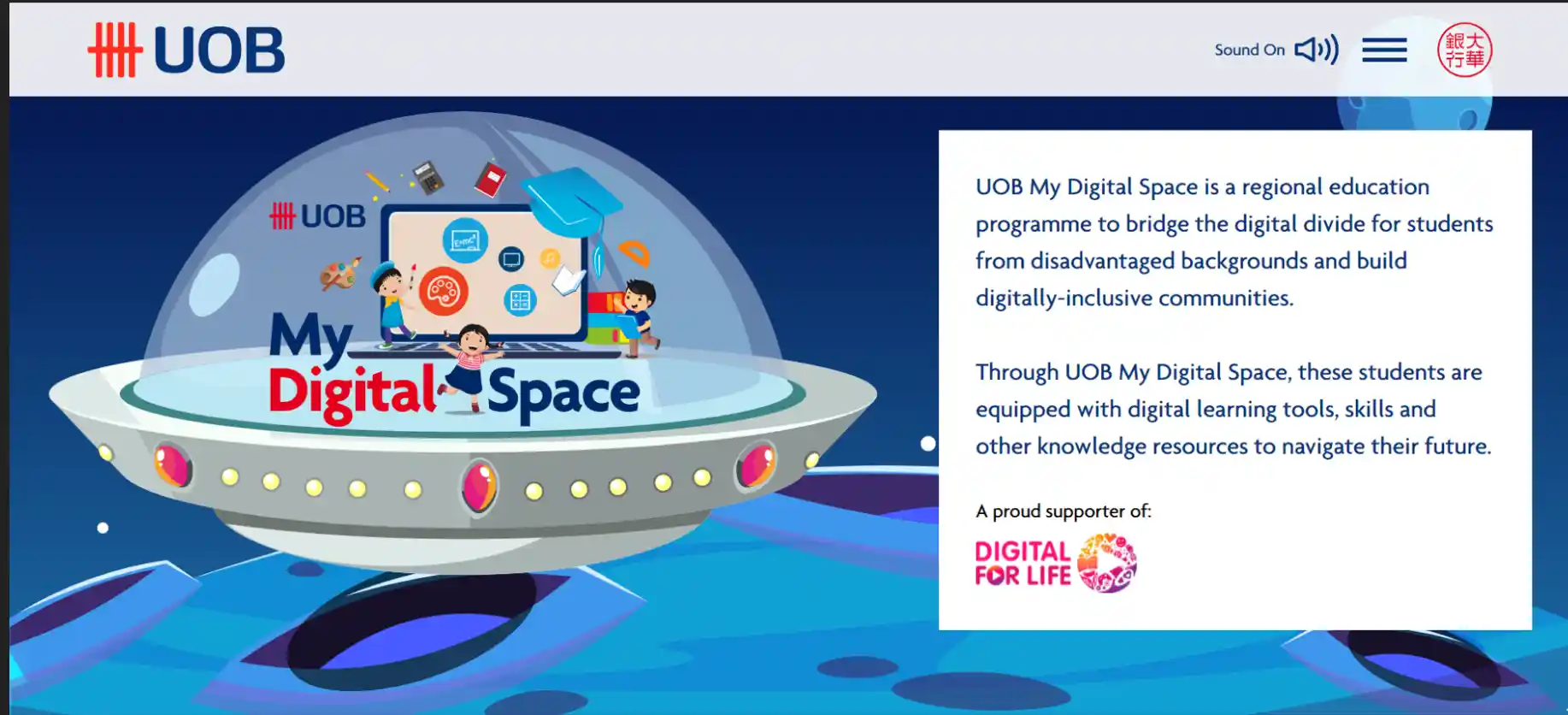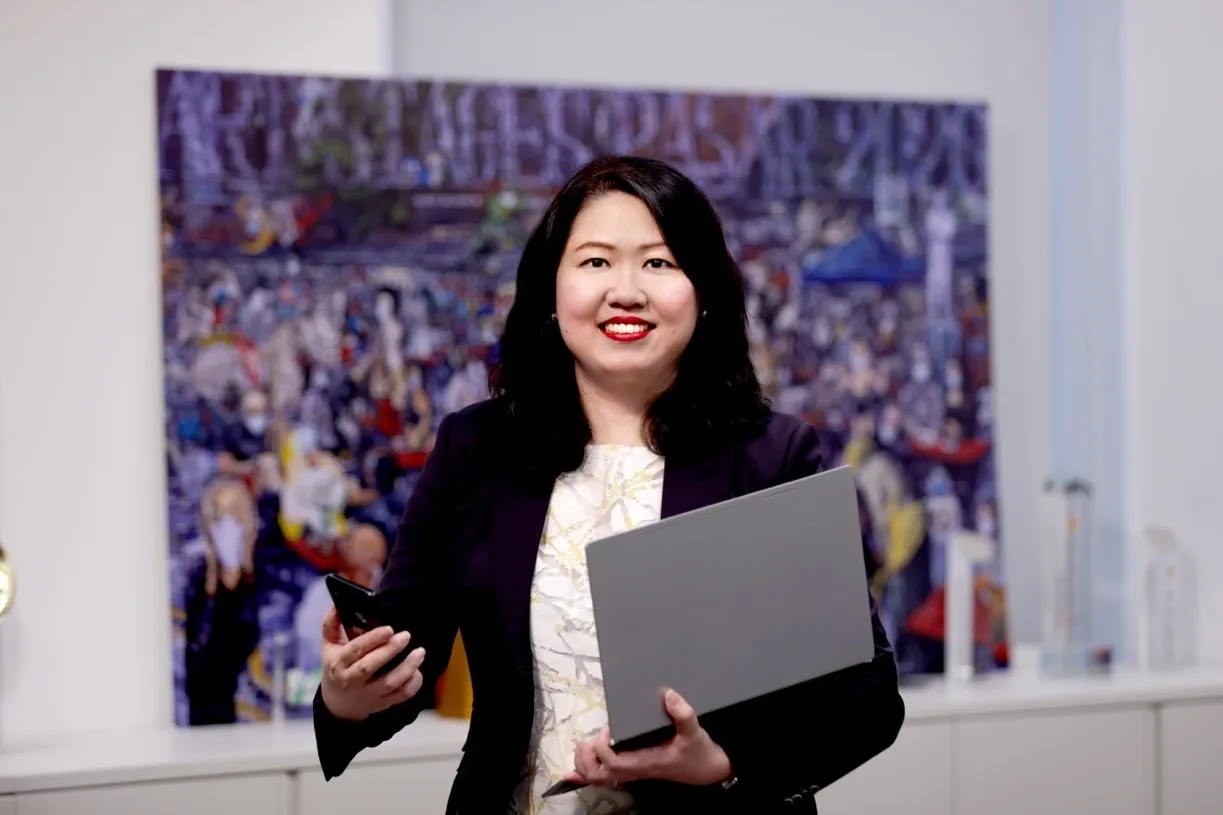Digitalisation has put information at our fingertips. No matter what we want to know—from fun facts to current affairs, all we need to do is search online, and we can find out in a matter of seconds and clicks.
So, can you imagine needing to wait for your turn or work around the schedule of your family members to access the internet?
This is what some children from disadvantaged families had to do when home-based learning was introduced. Some were only able to log on for lessons after their siblings had finished, while others had to squint at the tiny screens of their smartphones to attend class.
Either way, learning was compromised because of the lack of digital devices at home.
The makings of UOB My Digital Space
With the pandemic looming in the background of our lives and home-based learning here to stay, the need was to find a sustainable solution for these children to continue their education effectively.
“Education sets the foundation for the future. We support learning opportunities for young minds and help to bridge the digital divide.” Ms Lilian Chong, Executive Director and Head, Group Brand and CSR, Group Strategic Communications and Brand at UOB
It is with this in mind that in 2020, UOB launched UOB My Digital Space. The programme is part of the Bank’s broader global #UnitedForYou COVID-19 Relief Programme, which brings together the strengths of the UOB network and like-minded partners to help customers, colleagues and communities through to better times.
Equipping Students with the Tools for Change
UOB My Digital Space programme ensures students gain access to the technology they need to continue home-based learning.
The bank started by giving out digital learning kits to students from low-income families in ASEAN including Singapore, Brunei, Indonesia, Malaysia and Vietnam. Communities in Hong Kong and other markets in the region have also benefitted from the programme.
By 2021, UOB has distributed more than 1,000 digital devices to support the learning needs of disadvantaged students across the region. In Singapore, the laptops are pre-installed with basic software used by primary and secondary school students. To ensure cybersafety, the laptops are also fitted with filters that block inappropriate websites. Each laptop is also equipped with a mouse, a headset with a built-in microphone, and a multi-USB port—all of which are useful for learning.
To support more students in home-based learning, UOB partnered with non-profit organisation, Engineering Good, to distribute another 2,500 refurbished laptops to students in Singapore progressively from end 2021. This contributes to the circular economy and generates less e-waste, explains UOB.

Nur Muliana Binte Mamat, a student from Fuhua Primary School, has received a UOB digital learning kit to aid in her home-based learning.
From enabling—to digitally enriching and empowering lives
But for UOB, equipment alone is insufficient to close the digital gap. “The term ‘digitally inclusive’ can have many meanings, and technology should go beyond facilitating our daily lives,” Lilian explains.
Instead, “it should enrich our lives and enable us,” she shares.
UOB has offered this experience since 2019, when it worked with Central Singapore CDC to equip children with digital skills, such as coding, through the My Digital Bootcamp programme.
“The experience was beneficial in giving young children both the exposure to digital technology, and an understanding of the power it has,” Lilian recalls.
She adds that UOB My Digital Space aims to do the same: To allow students to go beyond home-based learning, access information about the world around them, and in turn, empower them with the skills and knowledge needed for the future.
This is why in 2020, UOB collaborated with Singapore Press Holdings (SPH) to include a complimentary subscription to The Straits Times and a vernacular newspaper of the student’s choice as part of their 2020 digital kit.
Since then, the initiative has expanded to an online learning portal that gives students learning resources in topics such as art, financial literacy, cyber security and sustainability.
Offering Holistic Learning Opportunities
To encourage children to develop new passions and ways to express themselves, the portal includes a tutorial series to guide the creation of different art pieces. And to improve financial literacy, students can also pick up basic money concepts and tips to help them start their savings journey.
Emphasis has also been placed on making important concepts like cyber security and sustainability easily understood for different ages. For example, the portal includes a series of Cyber Safety Activity Books provided by the Cyber Security Agency of Singapore. These comics come with activities like crossword puzzles and games to spot the difference in pictures—all of which are suitable for parents to do with their children, and will give families an avenue to discuss the important cyber security issues.
Sustainability topics like reducing waste and recycling are also presented through a series of bite-sized videos and enjoyable games that children can relate to.

Students can explore a series of educational topics like art activities through a series of tutorials, quizzes and exhibitions.

It takes a community to give access and drive progress
Reflecting on the evolution of the UOB My Digital Space, Lilian shares that beyond offering children an opportunity to learn, the initiative has also worked wonders in helping to unite the community.
She shares that on the philanthropy front, it has encouraged employee participation, whether in terms of donating pre-loved devices, or stepping up in the development of the learning portal—in doing so, building awareness about the need for digital inclusivity.
The emphasis on using refurbished laptops and computers is also UOB’s way of making a stand for environmental sustainability, and signal the importance of responsible consumption through this initiative.
Finally, the process of developing and distributing digital kits has allowed UOB to build relationships with community partners like Engineering Good, SPH and Singtel. Every organisation has different expertise, and they can combine their unique strengths to support the digital initiative.
“These partnerships are catalysts for us to multiply the impact of our corporate giving while we extend our reach into the community,” Lilian explains.
Looking into the future, Lilian shares that she is encouraged by the response and growth of the UOB My Digital Space thus far.
“Singapore is one of the eight markets that currently have UOB My Digital Space, but we could potentially expand it to more markets across our international network,” she adds.
“Digital inclusivity is about bringing this generation, including our customers and employees forward, and making sure that we have both access and progress at the same time,” Lilian concludes.
UOB is a partner in the Digital for Life national movement. You, too, can do your part by starting or helping a project to build a digitally inclusive society.
Find out about the other projects you can contribute to, and if you’re interested in creating or co-creating content in the following areas:
- Art
- Sustainability
- Financial literacy
- Cyber security
- Cultural discovery
Reach out to UOB and participate in UOB My Digital Space! Contact carina.chan@UOBGroup.com to find out more.












